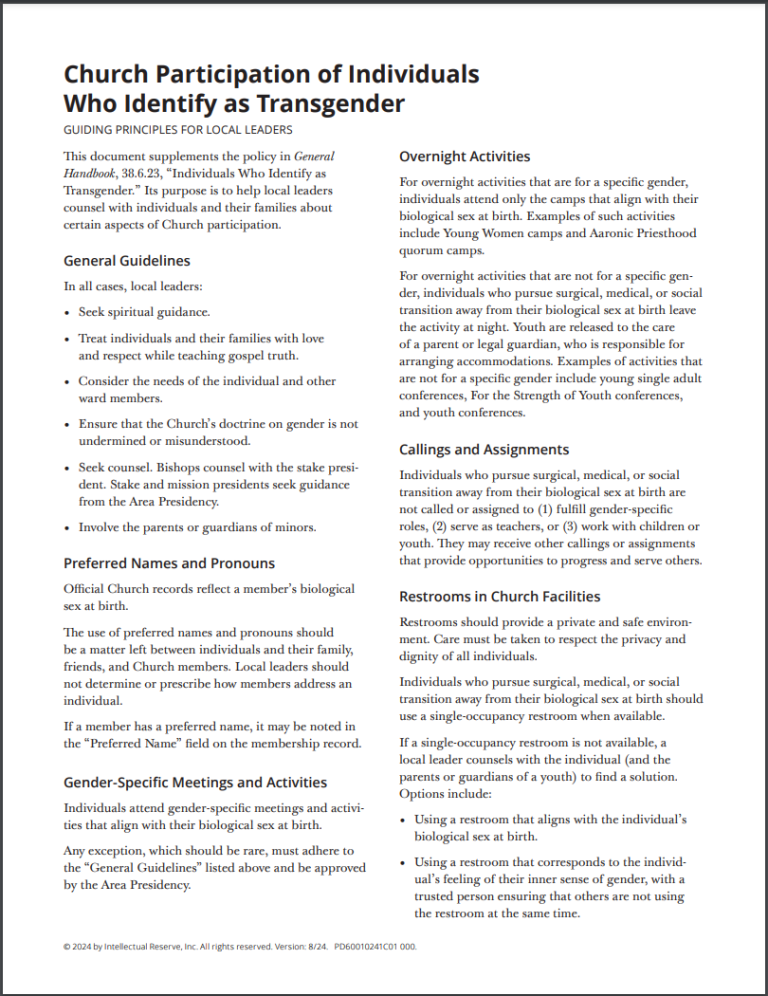Current Teachings on LGBTQ+
Is the Church changing its teachings regarding LGBTQ+ individuals and same-sex marriage?


Transgender Policies
August 19, 2024
On August 19, 2024 the church released a new set of policies regarding transgender individuals.
These new policies can be found in section 38.6.23 of the General Handbook.
Preferred Names and Pronouns
Official Church records reflect a member’s biological sex at birth.
The use of preferred names and pronouns should be a matter left between individuals and their family, friends, and Church members. Local leaders should not determine or prescribe how members address an individual.
If a member has a preferred name, it may be noted in the “Preferred Name” field on the membership record.

Gender-Specific Meetings and Activities
Individuals attend gender-specific meetings and activities that align with their biological sex at birth.
Any exception, which should be rare, must adhere to the “General Guidelines” listed above and be approved by the Area Presidency.
Overnight Activities
For overnight activities that are for a specific gender, individuals attend only the camps that align with their biological sex at birth. Examples of such activities include Young Women camps and Aaronic Priesthood quorum camps.
For overnight activities that are not for a specific gender, individuals who pursue surgical, medical, or social transition away from their biological sex at birth leave the activity at night. Youth are released to the care of a parent or legal guardian, who is responsible for arranging accommodations. Examples of activities that are not for a specific gender include young single adult conferences, For the Strength of Youth conferences, and youth conferences.
Callings and Assignments
Individuals who pursue surgical, medical, or social transition away from their biological sex at birth are not called or assigned to (1) fulfill gender-specific roles, (2) serve as teachers, or (3) work with children or youth. They may receive other callings or assignments that provide opportunities to progress and serve others.
Restrooms in Church Facilities
Restrooms should provide a private and safe environment. Care must be taken to respect the privacy and dignity of all individuals.
Individuals who pursue surgical, medical, or social transition away from their biological sex at birth should use a single-occupancy restroom when available.
If a single-occupancy restroom is not available, a local leader counsels with the individual (and the parents or guardians of a youth) to find a solution. Options include:
- Using a restroom that aligns with the individual’s biological sex at birth.
- Using a restroom that corresponds to the individual’s feeling of their inner sense of gender, with a trusted person ensuring that others are not using the restroom at the same time.
© Copyright. All rights reserved.
We need your consent to load the translations
We use a third-party service to translate the website content that may collect data about your activity. Please review the details in the privacy policy and accept the service to view the translations.